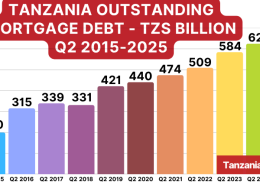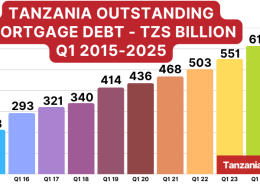In this article, Mr. Sunday Ndamugoba, Managing Partner of ABC Attorneys, analyses the rules and procedures for selling land in Tanzania to non-citizens.
One of the features or incidents of a Granted Right of Occupancy (GRO) is that it is capable of being subject of disposition. There are also a number of rules and procedure that need to be complied with in the process of the disposition of the GRO.
For a citizen of Tanzania, the procedure is straightforward as provided for in the Land Act, 1999 and the regulations made thereunder. The procedure includes notification for disposition, obtaining approval from the commissioner and many other compliance requirements.
However, when it comes to selling the same GRO to a non-citizen, the procedure becomes a bit complex and different. The difference arises from the requirement of the law which stipulates that a non-citizen may only obtain GRO or a derivative right for purposes of investment approved by the Tanzania Investment Centre (TIC).
Furthermore, the law states in a mandatory tone that a non-citizen shall not be allocated or granted land unless it is for the purposes of investment under the Tanzania Investment Act.
Thus we can say a foreigner cannot own land in Tanzania unless he wants to use that land for the purposes of or in connection to investment. And such ownership has to be subject to the approval of TIC.
This means that for a citizen to sell directly his GRO to a foreigner might be taken as a ground for revocation of his GRO.
Of course, the law clearly provides that the President must not revoke a GRO unless it is for the good cause. And one of the good causes as spelled out in the law is that if there has been an attempted disposition of a GRO to a non-citizen contrary to the laws of the land governing dispositions of GRO to non-citizen.
Therefore we must be aware of the requirements of the laws before we attempt to sell our land to foreigners.
Even though there are restrictions, it does not mean one cannot sell landed property to foreigners; the process of selling land to non-citizen is a bit complex as a non-citizen may only own land through TIC.
Therefore, after a foreigner has earmarked a land he/she wishes to purchase and after he has agreed on the price with the vendor, the vendor has to surrender his title to the land so that it can be re-categorized as land for investment purposes, thereafter, the land will be issued to TIC who will in turn issue a derivative right in the form of lease to the foreigner.
Other requirements, of course, will be the same as selling land to a citizen. Failure to observe the laid down procedure as stated earlier may be a good cause upon which the vendor’s GRO may be revoked by the President.
One may argue, therefore, that the easiest way a foreigner to acquire interest in landed property in Tanzania is through leasehold agreement.
However, in leasing the property the conditions that are attached to that land as far as its use is concerned must be complied with.
Thus, if the land is for residential purposes, leasing it to open a factory will be in breach of the conditions upon which the land was granted. Compliance with the laws is very important if they are to operate smoothly.
It is also possible for a foreign investor to acquire village land for purposes of investment.
However, such an investor will not be able to acquire the designated village land as it is; it must be transferred from village land to general land as per section 4 of the Village Land Act [CAP 114 R.E. 2002].
After the said transfer that must involve the villagers, through their village council and assembly respectively, and after compensation is paid to the villagers who are affected by the said transfer, the land will be transferred to general land.
After the said procedure, the land will be earmarked for purposes of investment, then granted to the TIC that will in turn issue a derivative right in favor of the foreign investor.
In the upshot, transferring land to a foreigner be it general land or village land, there are specific provisions of laws regulating transactions involving land which have to be complied with.
This article barely scratched the surface on the complexities that are involved, complexities that people wishing to dispose land to foreigners must be aware of, otherwise, they will risk their GRO to be revoked.
Failure to comply with the requirements of the laws as far as the disposition of land to foreigners is involved is a good cause, as it has been explained herein above, for the president to revoke a GRO. So we must be aware of these laws.











